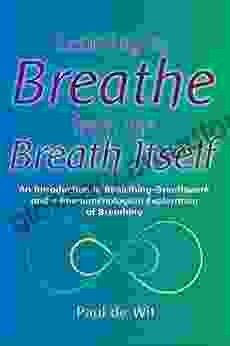Unveiling the Global Surge of Fundamentalisms: The Fundamentalism Project

In an era marked by increasing polarization and global instability, the rise of fundamentalisms presents a significant challenge to societies worldwide. The Fundamentalism Project delves into this complex phenomenon, offering a comprehensive analysis of its causes, manifestations, and implications.
Emergence and Characteristics of Fundamentalism

4.4 out of 5
| Language | : | English |
| File size | : | 2508 KB |
| Text-to-Speech | : | Enabled |
| Screen Reader | : | Supported |
| Print length | : | 296 pages |
| Lending | : | Enabled |
Defined as a strict adherence to core beliefs, fundamentalism manifests in various forms across religions, ideologies, and cultures. It often involves a rejection of perceived threats to traditional values, such as secularism, modernity, and globalization.
Fundamentalist movements tend to share certain characteristics:
- Intense focus on a specific text or doctrine: They adhere rigidly to a sacred or ideological text, interpreting it literally and rejecting alternative interpretations.
- Binary worldview: They divide the world into good and evil, with their own group representing the former and outsiders seen as the latter.
- Opposition to change: They seek to preserve traditional values and norms, resisting societal evolution and new ideas.
- Strong sense of community: They emphasize belonging and loyalty within their group, fostering a sense of separation from others.
- Political engagement: Many fundamentalist movements seek to impose their values on society through political means, often using violence or intimidation.
Global Rise and Manifestations
Fundamentalism has surged in recent decades, becoming a significant force in many countries. It manifests in various forms, including:
- Religious fundamentalism: Radical interpretations of religious texts, such as Islamic extremism, Christian fundamentalism, and Jewish ultra-Orthodox movements.
- Ideological fundamentalism: Rigid adherence to political or economic ideologies, such as communism, fascism, or extreme nationalism.
- Cultural fundamentalism: Defense of traditional cultural values and practices, often against perceived threats from globalism or multiculturalism.
The rise of fundamentalism has been attributed to a complex interplay of factors, including:
- Economic and political instability: Financial crises, unemployment, and authoritarian regimes can create a sense of insecurity and vulnerability, making people receptive to fundamentalist appeals.
- Globalization and social change: Rapid societal transformations and the spread of new ideas can challenge traditional beliefs and values, leading to a backlash from fundamentalists.
- Technological advancements: Social media and the internet provide platforms for fundamentalist groups to spread their messages and recruit followers.
- Leadership and charismatic figures: Fundamentalist leaders can inspire followers, providing a sense of purpose and belonging in times of uncertainty.
Challenges and Implications
The rise of fundamentalism poses significant challenges to societies and individuals. It can lead to:
- Violence and conflict: Extreme fundamentalist groups may resort to violence to achieve their goals or defend their beliefs.
- Intolerance and discrimination: They may demonize and target outsiders, including minorities, LGBTQ+ individuals, and those with different religious or ideological beliefs.
- Erosion of democratic values: Fundamentalists often advocate for authoritarian rule and seek to suppress dissent.
- Economic stagnation: Their opposition to change and modernization can hinder societal progress and innovation.
- Cultural isolation: They may isolate their followers from the wider society, limiting their exposure to alternative perspectives.
Addressing Fundamentalism
Countering the rise of fundamentalism requires a multifaceted approach that addresses its root causes and fosters tolerance, understanding, and dialogue. This includes:
- Promoting economic and political stability: Creating conditions that meet people's basic needs and foster hope can reduce the appeal of fundamentalist groups.
- Encouraging critical thinking and education: Teaching people to critically examine information, challenge biases, and appreciate different perspectives can help prevent them from being swayed by fundamentalist propaganda.
- Facilitating interfaith dialogue: Encouraging respectful interactions between people of different religions and beliefs can promote understanding and reduce prejudice.
- Strengthening civil society: Empowering civic organizations and fostering pluralistic societies can provide a counterbalance to fundamentalist ideologies.
- Addressing geopolitical factors: Resolving conflicts and promoting stability in regions where fundamentalism is prevalent can reduce its appeal.
The Fundamentalism Project provides an in-depth analysis of a complex and challenging global phenomenon. By understanding the causes, manifestations, and implications of fundamentalism, we can work towards mitigating its negative effects and fostering more tolerant, open, and inclusive societies.
Join the conversation and delve into the multifaceted world of fundamentalism with The Fundamentalism Project. Discover insights into its origins, evolution, and impact, and contribute to a better understanding of this critical issue.
4.4 out of 5
| Language | : | English |
| File size | : | 2508 KB |
| Text-to-Speech | : | Enabled |
| Screen Reader | : | Supported |
| Print length | : | 296 pages |
| Lending | : | Enabled |
Do you want to contribute by writing guest posts on this blog?
Please contact us and send us a resume of previous articles that you have written.
 Book
Book Novel
Novel Page
Page Chapter
Chapter Text
Text Story
Story Genre
Genre Reader
Reader Library
Library Paperback
Paperback E-book
E-book Magazine
Magazine Newspaper
Newspaper Paragraph
Paragraph Sentence
Sentence Bookmark
Bookmark Shelf
Shelf Glossary
Glossary Bibliography
Bibliography Foreword
Foreword Preface
Preface Synopsis
Synopsis Annotation
Annotation Footnote
Footnote Manuscript
Manuscript Scroll
Scroll Codex
Codex Tome
Tome Bestseller
Bestseller Classics
Classics Library card
Library card Narrative
Narrative Biography
Biography Autobiography
Autobiography Memoir
Memoir Reference
Reference Encyclopedia
Encyclopedia Susanna Wright
Susanna Wright M Elizabeth Halloran
M Elizabeth Halloran George White
George White Friedy Luther
Friedy Luther Geoffrey Macnab
Geoffrey Macnab Paul De Wit
Paul De Wit Franklin Toker
Franklin Toker Giuliana Jaccom
Giuliana Jaccom Franz Bardon
Franz Bardon George Mckenna
George Mckenna Gavin D J Harper
Gavin D J Harper George Pell
George Pell Shyamsunder Mandayam
Shyamsunder Mandayam Pat O Keeffe
Pat O Keeffe Gawain Jones
Gawain Jones Giancarlo Zaccone
Giancarlo Zaccone Franz Ruppert
Franz Ruppert Francois Bissonnette
Francois Bissonnette Gregory Paul Martin
Gregory Paul Martin Michael Burgan
Michael Burgan
Light bulbAdvertise smarter! Our strategic ad space ensures maximum exposure. Reserve your spot today!

 Daniel KnightWe're All Climate Hypocrites Now: Embracing Our Inner Hypocrisy to Save the...
Daniel KnightWe're All Climate Hypocrites Now: Embracing Our Inner Hypocrisy to Save the...
 Cole PowellOf Occasional Services Geneva Press: A Theological Resource for Worship and...
Cole PowellOf Occasional Services Geneva Press: A Theological Resource for Worship and... Camden MitchellFollow ·6.9k
Camden MitchellFollow ·6.9k Eugene PowellFollow ·3.1k
Eugene PowellFollow ·3.1k Eugene ScottFollow ·18.3k
Eugene ScottFollow ·18.3k Richard WrightFollow ·4.8k
Richard WrightFollow ·4.8k Chuck MitchellFollow ·16.8k
Chuck MitchellFollow ·16.8k Ralph TurnerFollow ·18.4k
Ralph TurnerFollow ·18.4k Corbin PowellFollow ·4.9k
Corbin PowellFollow ·4.9k Jorge AmadoFollow ·19.8k
Jorge AmadoFollow ·19.8k

 Chinua Achebe
Chinua AchebeLetters to My Bipolar Self: A Journey of Hope, Healing,...
Bipolar disFree...

 John Parker
John ParkerLearning to Breathe from the Breath Itself: A...
In the whirlwind of modern life, finding...

 Beau Carter
Beau CarterExperiences In Psychoanalysis: A Journey into the...
Are you fascinated by the...

 George Hayes
George HayesExperiences Of The Neurological Condition Dystonia
Navigating the Labyrinth of a Complex...

 Jerome Powell
Jerome PowellOver 50 Keto Meal Prep Recipes: Your Essential Guide to...
Welcome to the world...
4.4 out of 5
| Language | : | English |
| File size | : | 2508 KB |
| Text-to-Speech | : | Enabled |
| Screen Reader | : | Supported |
| Print length | : | 296 pages |
| Lending | : | Enabled |










